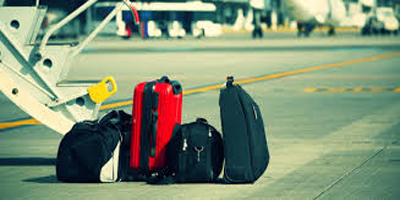Study Shows Traveling Might Help You Live Longer—If You Follow These Tips
A new study published in the Journal of Travel Research suggests that positive travel experiences could help slow biological aging. The researchers used the concept of entropy—a measure of disorder and chaos in physics—to explain how vacations impact health. Higher entropy, or more disorder in the body, can accelerate aging and lead to poor health, while lower entropy could do the opposite.1
Travel often involves more socializing or physical activity than usual, both of which can help counter entropy increases and contribute to healthy aging, according to Fangli Hu, lead author of the study and a researcher and PhD candidate at the School of Medical and Health Sciences at Edith Cowan University in Australia.
“Overall, travel might offer a valuable opportunity to nurture both physical and mental health, potentially slowing down the biological aging process,” Hu told Verywell in an email.
Negative travel experiences—such as stress or illness—can lead to poor health outcomes. Finding ways to make travel a positive experience can offer some health benefits.
“Different types of travel might have varying effects on health and aging, and these impacts may differ across diverse populations,” Hu said. “It doesn’t have to be an international trip; local travel or weekend escapes might work well too. The key is to tailor travel plans to what best suits individuals’ lifestyle, personal preferences, and health status.”
Travel Can Teach You How to Relax
Stress can speed up aging,2 but travel often helps people forget their day-to-day responsibilities temporarily. Research shows that even a short, four-night vacation can help reduce stress.3
However, many people experiencing chronic stress—especially due to factors like economic instability—4don’t have the opportunity to travel.
To make the most out of a vacation, try to immerse yourself in the experience and avoid fixating on the do-to list you left behind.
Staying Active While Traveling
Whether you decide to go hiking, bike, or explore a city on foot, traveling often leads to more physical activity than you might typically get at home. Exercise has many health benefits, including improving bone health, reducing heart disease risk, and lowering the chance of developing dementia.5
During your travel, remember to pace yourself, wear appropriate footwear, and listen to your body, said Kristin Weible, PT, MS, ScD, an assistant professor of physical therapy at the University of Arizona College of Health Sciences.
“It’s always important to stay hydrated. We kind of forget that when we’re out and about, seeing new things and having fun. This will help with mental clarity and with your joint function,” Weible said.
Exercising on vacation provides immediate health benefits, even if it’s not as intense as a backpacking trip or yoga retreat. Just one session of physical activity can help you sleep better, feel less anxious, and lower blood pressure.5
Regular exercise can help slow biological aging,6 support the immune system, and delay age-related immune decline.7 While one active vacation won’t keep you young, maintaining these physical activities after your trip can support healthy aging.





ارسال دیدگاه
مجموع دیدگاهها : 0در انتظار بررسی : 0انتشار یافته : ۰